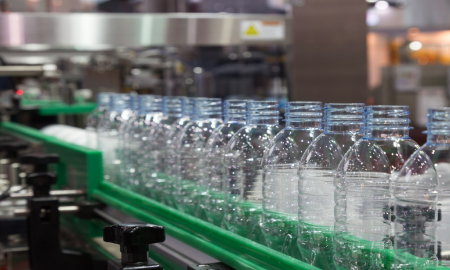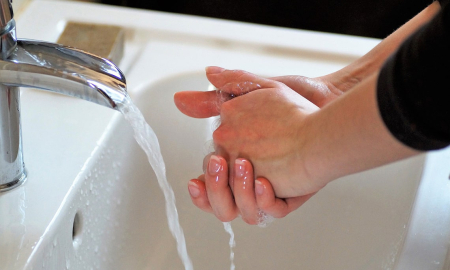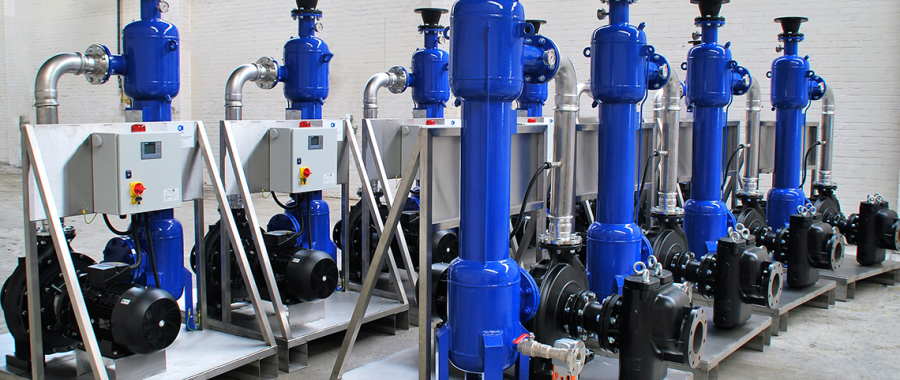What Are The
Most Common Problems
Affecting Closed Water
Systems?
Closed systems, such as heating and cooling circuits, rarely fail due to corrosion and leakage.
Most failures are due to an accumulation of sediment causing blockages, poor heat distribution or dissipation, boiler and valve failures. So, what kind of treatment options can be used?
These systems are susceptible to three main problems:
- Biofouling – bacterial build up within the system
- Corrosion
- Scale
These problems reduce the performance of the system, waste energy, increase maintenance costs and contribute to the early failure of plant and components.
According to BSRIA BG50: Side stream filtration can be used to help maintain a low concentration of suspended solids in the circulating water following pre-commission cleaning and reduce the risk of differential aeration corrosion in areas of low flow. In addition to the longer term benefits of early installation of side stream filtration, it can also help to maintain water quality during the commissioning period.
Common bacterial contamination includes:
- Pseudomonas – slime forming and produces biomass
- Sulphate reducing – produces corrosive hydrogen sulphide/sulphuric acid
- Nitrite reducing – breaks down corrosion inhibitors and produces ammonia
- Methanogens – feed on organic matter producing methane gas
Without appropriate maintenance and treatment regimes, these problems can soon escalate and lead to system failures.
What kind of treatment options can be used?
- Corrosion and scale inhibitors can be dosed proportionally based on system volume and monitored during the life of the system. There are various types of inhibitors but these should be carefully selected based on system metallurgy.
- Biocidal treatments – the appropriate product or products must be selected based on many variables including bacterial contamination, metallurgy and temperature.
Installation of automatic dosing equipment provides a fast, effective way of introducing the correct volume of treatment into the system as required. This also includes glycol which enables a pre-set blend ratio to be dosed into all make-up water.
- Filtration – to remove the dirt, debris and contamination. This dirt and debris absorbs/obstructs the chemical treatment programme preventing it from working at its optimum. It provides essential nutrients for bacterial growth.
Systems should be proactively monitored and evaluated to prevent them deteriorating. It is important that the chemical and microbiological results are reviewed and trends graphed so the best treatment programme can be put in place and amended (if required) to allow them to perform to their optimum performance for many years. Unless they are routinely monitored, any problems that develop may contribute to irreversible damage through erosion, corrosion or biofouling.
There are a number of filtration options available to aid the cleanliness of the system; one highly effective method is centrifugal separation. Using centrifugal action to remove suspended solids or dirt, the cobra cyclone side stream filtration unit can ensure a continuous high flow of solids removal without losing any water. The unit is driven by inlet pressure, with liquids and solids accelerated into a vortex within a separation chamber. Clean water exits through the outlet while dirt and particulates are purged from the base into a solids collector. The separator provides progressive removal of particulates down to 5 micron on recirculating systems.
Treatment of closed water systems with a cobra cyclone dirt separator can provide continuous filtration, without the requirement of backwashing or flushing. Because a closed recovery system means water is not lost, it saves energy and water. Reduced maintenance costs, chemical waste and reduced downtime are also associated benefits.
Suspended solids are removed and purged, meaning all recycled water in the closed system is not at risk of causing erosion, corrosion or fouling.
SOCOTEC’s cobra side stream separation units are available to hire, as well as purchase.
For advice on how to treat your closed water system, please get in touch.





Add new comment